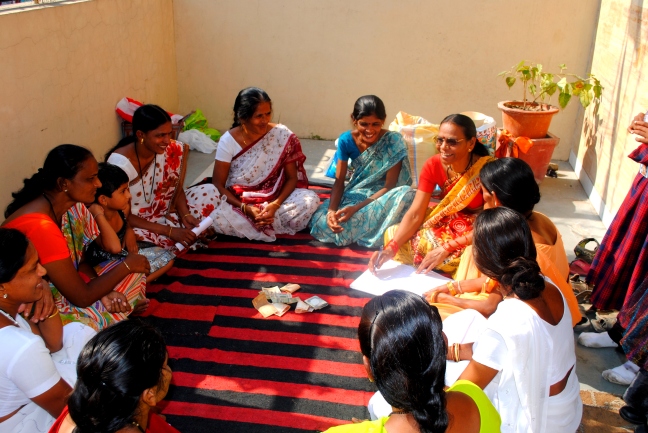Posted on


If the Buddha was an enlightened financial advisor, how would he recommend we make money and make the world a better place at the same time?! Money and true spirituality are often thought to exist in two completely different spheres. But if we are to be socially engaged Buddhists who have high ideals, pursue awakening, but also make a living in the world and try to benefit it, some enlightened though is needed in the area of spiritual economics. The Buddha did give some advice on how to deal ethically with money in the sutras – he said keep some of your money to re-invest in your business, support your parents/family/ relatives and the needy. Give some to holy persons who are practicing the spiritual path and save the rest.
Of course he also said a life of simplicity, contentment and no harm was best. In view of these principles perhaps it’s unethical for Buddhists to accumulate vast sums of wealth whilst 30,000 children die each day. The Buddha also recommended we pay our employees fairly and produce a quality product and deal honorably with our clients. There are 5 trades prohibited to Buddhists – trading drugs/poison/weapons/slaves/prostitution. In Buddhism the concept of ahimsa or ‘no harm/violence’ and metta or wishing all beings well would mean that economic policies that deprive other humans of their basic rights such as healthcare, affordable education, affordable accomodation, food and childcare would be contrary to ahimsa. This is because it makes people suffer, creates desperation, crime, drug use, hopelessness, resentment and eventually revolution and violence by the oppressed underclass.
Having worked with the poorest of the poor in the slums of India and been a street kid in Australia, I have clearly seen the terrible suffering that results when some people have too much and others not enough. Looking at countries with a good standard of living vs. countries with extremes of poverty it’s clear that things like uncorrupt police and justice systems that are effective and keep law and order whilst respecting human rights, unions, the welfare state and so forth are necessities that make for quality of life. On the other hand, being successful in your job and making money is not necessarily an evil thing if you are generous and create jobs for others whom you treat fairly. Generosity is implicit in Buddhist culture, as exemplified by Buddha’s greatest lay supporter, Anathapindika or ‘Helper of the poor’ as he was also known.
We need a healthy economy for quality of life and job generation. But a healthy economy does not have to be based on greed and selfishness or the exploitation of poor and uneducated workers in developing countries using dirty technology with spiritually bankrupt materialistic values. There is so much fear and hype in the media about money and security. We have forgotten that we are connected to each other, and that people are and the planet are more important than ‘things’. Perhaps an economy based on humanities real needs, like clean water, education, health care, organic produce, shelter, education, gender equality and so forth could look very different from our current one based on unsustainable consumption whereby we spend more money on ice cream than on aid.
Buddhist monks had one of the first democracies in the world. For Buddhists, it’s always the middle path between extremes. If you live in extreme poverty and do not have your basic needs met, it’s hard to be altruistic and think of higher things like saving the world or becoming enlightened. But if you buy your dog a diamond collar while thousands of children starve, something terrible has happened to your humanity.
Buddhists believe in the concept of interdependent origination, that all things arise from an infinite web of cause and effect, which basically means we are all interconnected. So if we want to be happy, it’s not just a personal matter. It’s also a matter of benefitting others and making a more kind, sane and healthy world, which in turn benefits us. 80 people in the world have the combined wealth of half the world’s population. Elsewhere corrupt governments backed by powerful countries/corporations (who give millions for access to cheap resources) slaughter and exploit their own people. These extremes show where greed leads. We all want a good life with comfort, but if we mindlessly consume without thinking about where the cheap product we bought comes from and the suffering it creates, we are willfully ignorant. Is a $20 bargain worth the person who made it being enslaved? Do you really want to look good in something made by a 12 year old and works 14 hours a day in an oven- like Bangladeshi factory?
There is a great need for ethics and compassion and economics. I hope it will happen in my lifetime. In the mean time, I can do my best in my little corner of the world.
No comments:
Post a Comment